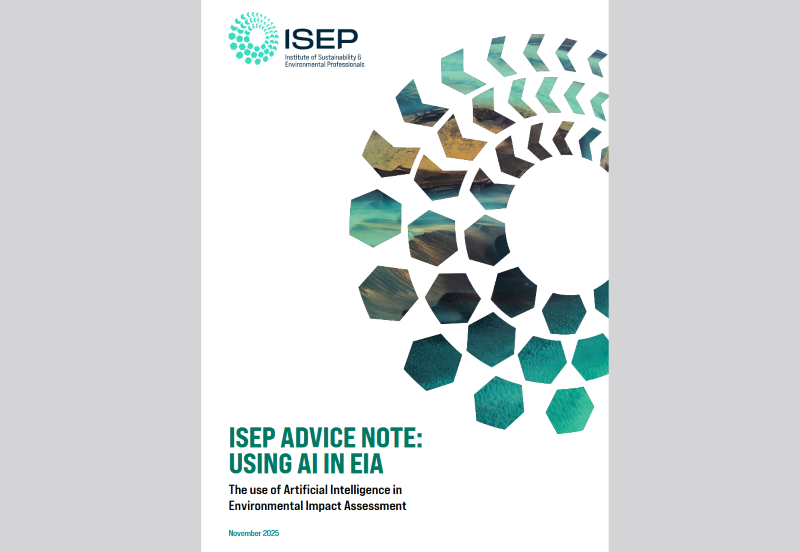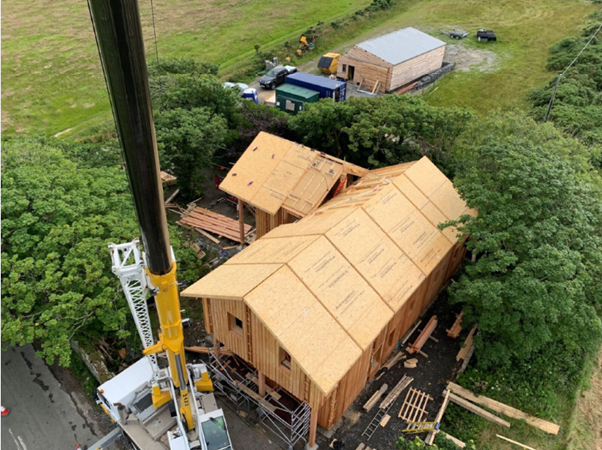A new report on the use of Artificial Intelligence (AI) in Environmental Impact Assessments (EIAs) has been published, with Alistair Walker, Technical Director of Lanpro, as the lead author of the advice and guiding principles on behalf of the ISEP (Institute of Sustainability and Environmental Professionals).
ISEP has published Using AI In EIA, which explains how AI can be applied to Environmental Impact Assessments, setting out practical steps for integrating new technology into existing workflows. While provided for EIA practitioners, this advice transcends the regime and is applicable the planning and wider development sector.
Artificial intelligence has been adopted across many parts of the planning system but its role in EIA remains uneven. While automation is already common in data processing and mapping, other areas such as scoping, evaluation and consultation have seen slower uptake, partly due to concerns about transparency, confidentiality, and professional judgement.

The report demonstrates how this gap will narrow. It provides guiding principles to help companies safely promote the use of AI tools to support compilation of evidence, pattern recognition and iterative testing in a way that complements (rather than replaces) specialist expertise, leading to improved consistency and freeing up time for closer analysis.
Commenting on the publication of the report, Alistair Walker said: “We are moving past the stage of AI being viewed as experimental. Used carefully, it can increase the quality of assessments, reduce repetition and help teams focus on the answers that matter most to our clients.
“Our report stresses that AI should sit within clear governance structures, with safeguards including transparent methodologies, audit trails and human oversight at each stage of the assessment. Professional judgement remains central to EIA, with AI functioning as a tool rather than a substitute.
“The report also highlights the need for proportionate adoption. Not every project requires advanced automation, but complex schemes with extensive datasets can benefit from targeted use of AI, particularly where it improves the clarity of supporting evidence or accelerates scenario testing.
“For developers, the findings suggest that early integration of AI can shorten programme times by streamlining baseline studies and reducing the risk of late data challenges. For local authorities, there is potential for greater consistency in submissions and improved scrutiny of technical assessments.
“AI is not a replacement for strong environmental assessment. It is a way to improve it, provided we adopt and utilise it responsibly.”




















